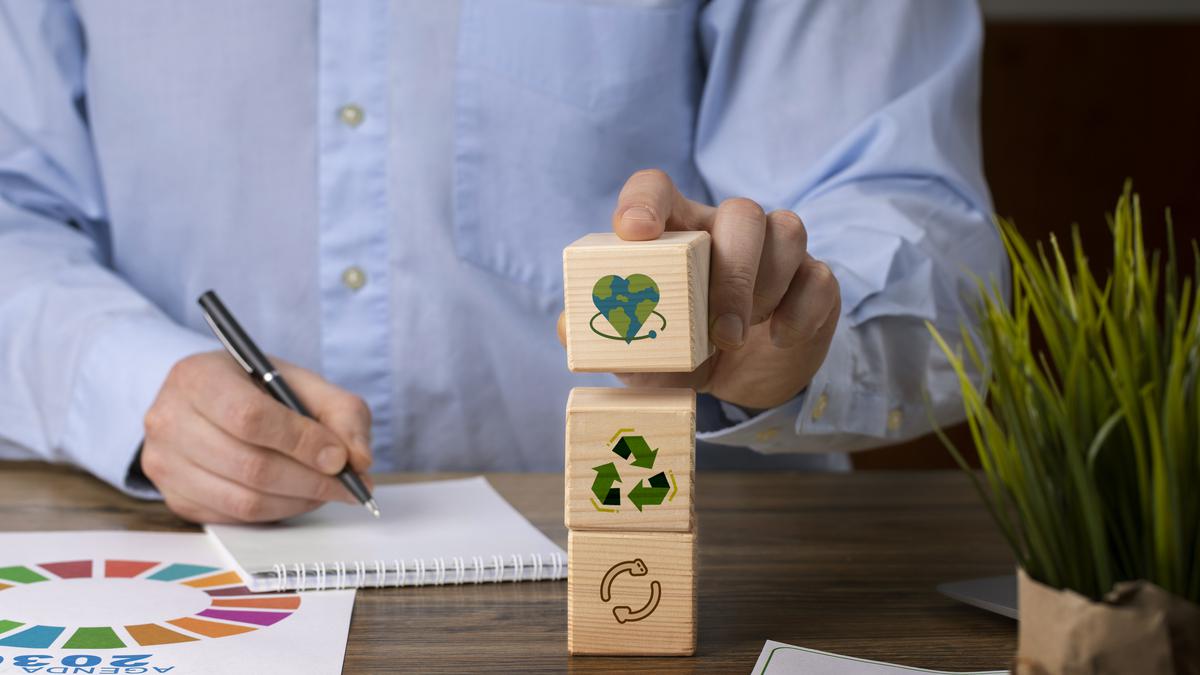
Careers in India’s circular economy
The Hindu
Careers in India’s circular economy
Aldo Leopold, the renowned conservationist, captured the essence of the circular economy when he said, “Conservation is a state of harmony between man and land.” In recent years, the concept of a circular economy has gained significant momentum as a sustainable alternative. India is facing mounting challenges concerning waste management and resource depletion. However, amid these challenges, the circular economy offers a glimmer of hope.
The circular economy is an economic system that aims to minimise waste and promote the continual use of resources through reduce, reuse, and recycle. It advocates the design and production of goods with a focus on longevity, repairability, and recyclability, as well as the restoration and regeneration of natural ecosystems. Here are five new emerging career opportunities in this circular economy.
Solid waste management specialists develop and implement strategies for the proper handling, disposal, and reduction of solid waste. It involves roles such as waste management planning, waste collection and transportation, recycling of waste, landfill management, and waste-to-energy conversion management. A Bachelor’s degree in Environmental Science, Environmental Engineering, Civil Engineering will be the foundation for this role. One can also opt for an advanced Master’s degree in Environmental Management or a specialised programme in solid waste management to enhance expertise and career prospects.
Recycling programme coordinator is responsible for developing, implementing, and managing recycling initiatives to promote sustainable waste management practices. They collaborate with various stakeholders, including businesses and local government, to increase recycling rates, monitor programme effectiveness, and raise awareness about recycling benefits. A Bachelor’s degree in Environmental Science can provide a comprehensive understanding of environmental issues, including waste management, recycling, and sustainable practices. It’s essential to engage in internships that focus on waste management, recycling, sustainability, and project management to gain practical experience and relevant skills for this position.
Waste-to-energy engineers: As India faces a mounting waste management crisis, converting waste into energy presents an opportunity to address both waste disposal issues and energy needs. Waste-to-energy engineers design and operate systems that convert organic waste into biogas or electricity. A strong foundation in engineering principles, particularly in areas related to energy conversion, environmental science, and waste management, and a significant understanding of various concepts of thermodynamics, and fluid mechanics. Heat transfer principles, combustion engineering, renewable energy systems, environmental engineering, and energy policy and regulations would be useful for this role. Additionally, seeking practical experience with waste-to-energy companies or research institutions can provide valuable hands-on knowledge in this specialised field.
Waste reduction educator plays a crucial role in promoting sustainable practices and raising awareness about waste reduction, recycling, and proper waste disposal methods. They design and deliver educational programmes and workshops for communities, schools, businesses, and organisations to encourage environmentally responsible behaviour. To become a waste reduction educator, one can pursue a bachelor’s degree in fields like environmental studies, environmental science, environmental policy, or resource management.
Resource recovery manager plays a crucial role in designing and executing sustainable strategies for recovery and reuse of resources from various waste streams, diverting materials from landfills and reducing environmental impact. They are responsible for waste assessment and planning, analysing the composition of waste to identify potential resources for recovery. To pursue this career, a Bachelor’s degree in Environmental Engineering, Environmental Science, Waste Management, Sustainability Studies, or a related field would be ideal. Regardless of the specific Bachelor’s degree, gaining practical experience through internships, research projects, or relevant work experience can significantly enhance one’s qualifications and expertise.













